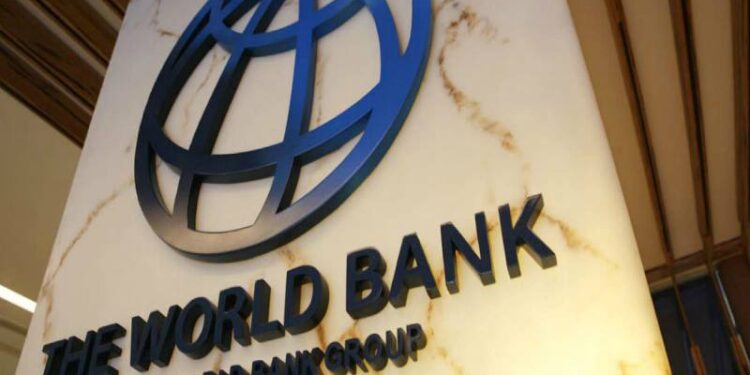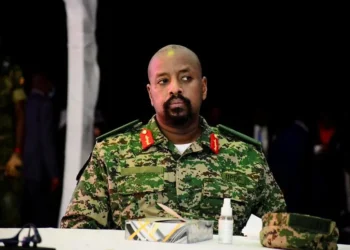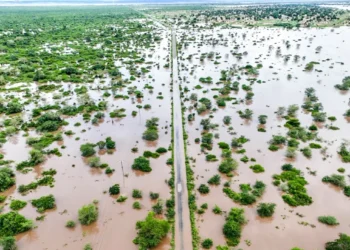By Jon Harald Sande Lie*
The World Bank issued a statement on 8 August 2023, announcing that it had effectively suspended all new public financing to Uganda over concerns with the country’s anti-homosexuality law, which “fundamentally contradicts the World Bank Group’s values”.
According to Human Rights Watch, the anti-homosexuality act violates multiple fundamental rights guaranteed under Uganda’s constitution and a number of international human rights agreements which the government of Uganda has signed. The act was first proposed in March 2023, and adopted by the Ugandan parliament in early May.
The World Bank, and the diplomatic and donor community writ large, follow closely what happens in Ugandan politics.
It took three months for the bank to react and issue the statement. This was fairly fast. The World Bank is usually a slow mover because of its due diligence bureaucracy. It takes time to have members on board behind political statements. So, because it took only three months, one could argue there was an internal push from central people or member states. This says something about the bank’s ambiguous relationship to its client states’ domestic politics and how it deals with political concerns.
The World Bank has an apolitical mandate. Article IV (section 10) of the Bank’s articles of agreement says
the Bank and its officers shall not interfere in the political affairs of any member; nor shall they be influenced in their decisions by the political character of the member or members concerned.
On the other hand, its mission statement “to end extreme poverty and promote prosperity in a sustainable way” is not only political but requires political action.
As a social anthropologist, I have researched international aid in eastern Africa and particularly followed the relationship between the World Bank and Uganda since 2006.
The World Bank’s engagement with Uganda has always filtered through into the country’s domestic affairs. In my view, the recent suspension of funding over the anti-homosexuality law was in keeping with that tradition. The previous interventions in domestic issues involved presidential term limits, market reforms and governance reforms.
I believe the interventions should be viewed in the context of informal and indirect means through which the World Bank seeks to control its clients. Despite its insistence on national ownership of its projects, the World Bank uses its lending portfolio to govern and control its clients.
Presidential term limits
In 2005/6, the World Bank cut its loans to Uganda by 10% due to technical issues referred to as “prior actions” which the government had failed to implement before signing the loan agreement, causing expenditure overruns in the public administration budget. The real reason for cutting aid, in my opinion, was politics. The World Bank was frustrated when President Yoweri Museveni lifted the presidential term limit to seek re-election again.
The recent reaction to the anti-homosexuality act thus demonstrates a continuity in how the World Bank responds to domestic political affairs. It also shows a change, as the reaction is not rooted in politics or concealed as a form of techno-bureaucracy, but explicitly linked to values. The tone is different. The World Bank always sought to appear neutral on values. It suggests to me that the institution’s most prominent owners and shareholders have weighed in.
Market reforms
During the structural adjustment era, lasting until around 2000, World Bank loans to Uganda and other recipients came with strict conditions and ready-made policies baked into them. The bank could make loans conditional on the recipient state privatising state-owned enterprises or liberalising the economy. Those are highly political and ideological measures in the client state’s sovereign domain. For instance, Museveni bought into a lot of the structural reform programmes which included market reforms and power sector development. This is in contrast to Ethiopia, which until very recently has been considered more resistant to World Bank proposed reforms.
A later disbursement tactic was to make concessional lending contingent on the government making its own national poverty reduction strategy. Once that was endorsed by the bank, the bank would provide financial assistance to help the government implement its own strategy. This bypassed questions about external governance and policy imposition.
Governance reforms
As the World Bank withdrew from direct control, it aimed to retain power through other means – while respecting national ownership. Whatever is proposed by aid recipients still needs the bank’s endorsement to become effective.
The World Bank’s power and control don’t just lie in the ability to decide what to fund and when to stop funding. It is just as much a result of the bank’s ability to frame partnership and the conditions under which the recipient exercises the freedom it has been granted.
One of these freedoms concerns the formulation of national development policy. National policy needs the bank’s approval to become effective. So the client government should do as the bank wants it to do, but voluntarily.
The bank can govern at a distance. The policies funded by the bank are defined as the state’s own polices.
The World Bank, and indeed donors in general, always emphasise the principle of national ownership, even as their policies undermine it. This gives donors the advantage of placing the responsibility for failure on their clients if aid programmes do not succeed. And indirect governance structures imply that client governments appear both as objects to be shaped by donor policies and as subjects with whom agreements are made.
What next
How the World Bank governs and relates to its clients (not just in Uganda) has changed over time, from direct power and policy imposition to more indirect and tacit dynamics concealed as mutual partnership.
The fact that the Ugandan government went on to adopt the anti-homosexuality bill, despite the bank’s indirect governance and technocratic micromanagement, can thus be read as a failure of the partnership arrangement and the bank’s ability to govern at a distance.
Nor did lobbying and arm-twisting by international donors, the US and the EU among others, persuade the government to kill the bill.
More actors and emerging economies are becoming increasingly active as sources of financing, such as China, the Gulf states, Russia, and private actors. These are potentially replacing traditional western donors, marking a shift to more geopolitical rivalry on the African continent. But few lunches are free, and the new, emerging actors pose new conditions and expectations. The World Bank, given its commitment to transparency and democracy, may after all be preferable.
A return to more direct, conditionality-based governance, as practised during the structural adjustment era, could be a way to deal with values, but could jeopardise national ownership and mutual partnership.
__________
* Research Professor, Norwegian Institute of International Affairs.



























































